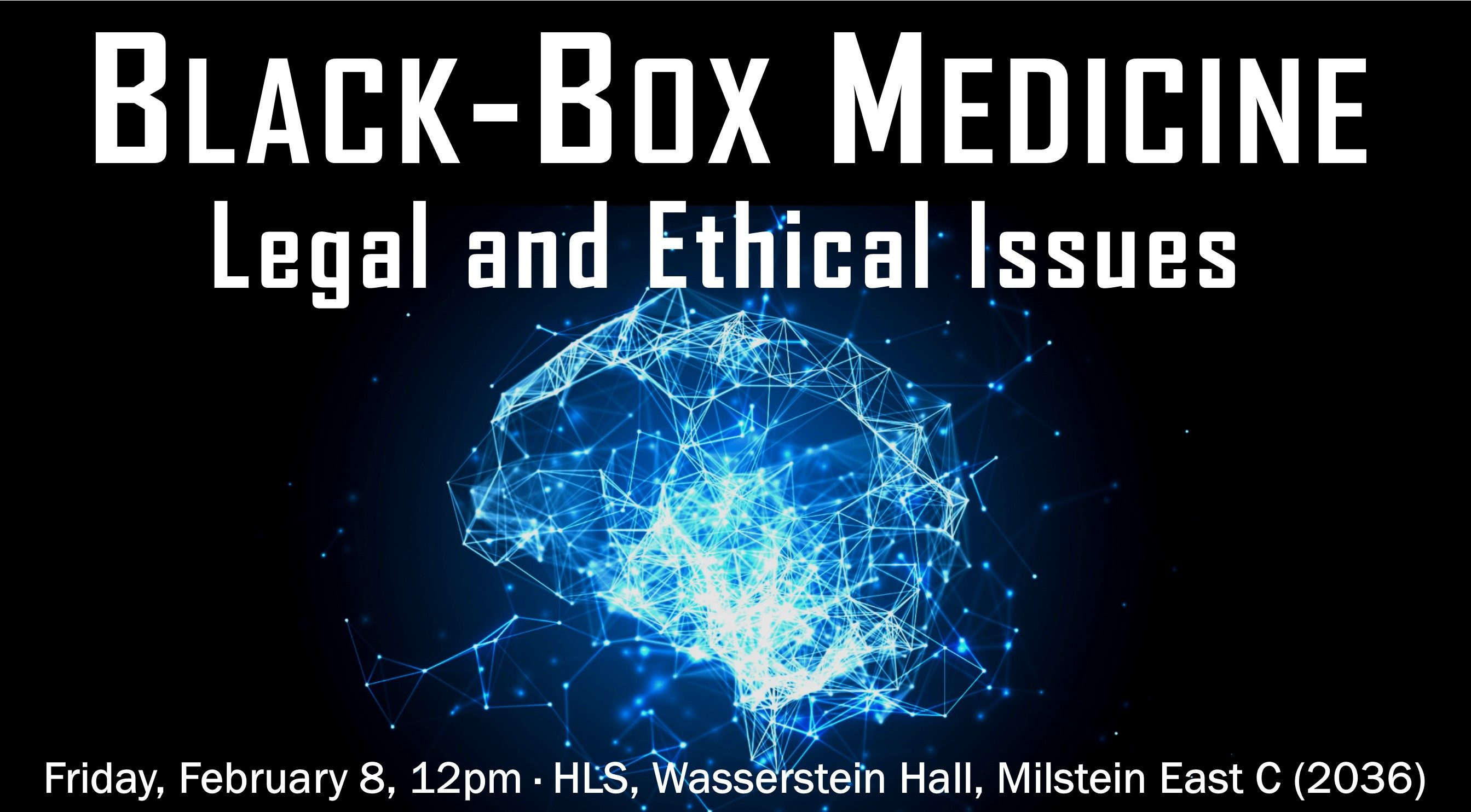Join us on Friday for Health Policy Biothics Consortium!
Black-box medicine—the use of opaque computational models to make care decisions—has the potential to shape health care by improving and aiding many medical tasks. For example, IBM Watson for Oncology is a machine-learning system that intends to help clinicians quickly identify essential information in patients’ medical records and explore treatment options for 13 cancers. However, it has only recently emerged that the recommendations Watson for Oncology gave for cancer treatments were “often incorrect” and that IBM kept this defect secret for over a year. What are the ethical and legal issues of black-box medicine? When do algorithms operate like a “black box“? How can we ensure that artificial intelligence technologies deliver what they promise?
Lunch will be provided. This event is free and open to the public, but seating is limited and registration is required. Register now!
Panelists
- I. Glenn Cohen, Faculty Director and James A. Attwood and Leslie Williams Professor of Law, Harvard Law School and Faculty Director, Petrie-Flom Center for Health Law Policy, Biotechnology, and Bioethics at Harvard Law School
- Ziad Obermeyer, Acting Associate Professor, Health Policy and Management, University of California, Berkeley, School of Public Health
- Moderator: Carmel Shachar, Executive Director, Petrie-Flom Center for Health Law Policy, Biotechnology, and Bioethics at Harvard Law School and Lecturer on Law, Harvard Law School
The Health Policy and Bioethics Consortia is a monthly series that convenes two international experts from different fields or vantage points to discuss how biomedical innovation and health care delivery are affected by various ethical norms, laws, and regulations.
They are organized by the Harvard Medical School Center for Bioethics and the Program on Regulation, Therapeutics, and Law (PORTAL) at Brigham and Women’s Hospital, in collaboration with the Petrie-Flom Center for Health Law Policy, Biotechnology, and Bioethics at Harvard Law School. Support provided by the Oswald DeN. Cammann Fund at Harvard University.
